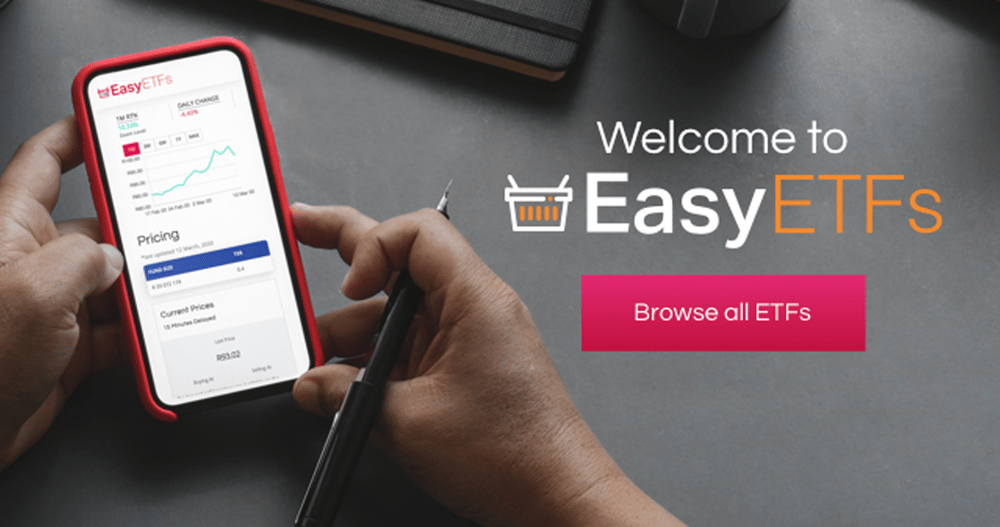Satrix Inclusion & Diversity ETF
Inclusion, which measures how well workers from various groups of people contribute to the operations and success of a business, is linked with diversity – which measures the representation or make-up of an entity. While purely merit-based appointments within companies is always ideal, investment in high-potential and previously disadvantaged individuals is quite important, especially given the context of South Africa’s history.
Indeed, companies willing to make the astute decision to improve on inclusion and diversity may reap the rewards. Research from workplace platform Great Place to Work finds that the benefits of a diverse and inclusive workplace include higher revenue growth, increased ability to recruit a diverse talent pool, 5.4 times higher employee retention and, arguably, the most important of all: greater readiness to innovate. Innovation, which makes changes to established methods, ideas and products (or services), is something all businesses strive for and which we think may be likely in teams with diverse backgrounds and ideas. From an equities perspective, finding better ways to provide or improve an existing product or service ultimately drives better revenues, cost management, improved profitability and cash flow – which may drive share price returns.
Accordingly, the Satrix Inclusion & Diversity ETF tracks the performance of the Refinitiv Satrix South Africa Inclusion & Diversity Index. The index uses as its starting point all the listed companies on the JSE that meet Refinitiv’s ESG criteria. Then, 25 measures are applied that fit into one of four inclusion and diversity pillars, namely: Diversity; Inclusion; People development; News & controversies. Companies with a positive score on each of the four pillars are assigned an overall score, which is simply the average of the pillar scores. They are then ranked based on their overall score in descending order, and the top 30 are included in the index. The index is rebalanced twice a year.

Fund suitability
-
This ETF is ideal for ethical-based investors enabling them to invest in line with their values. Given that the screening process leads to exclusion and concentration (which gives it a high-risk/aggressive rating), we think the ETF should be held as part of a portfolio over a long-term investment horizon.
Fees
- The fund has a total expense ratio of 0.67%.
Top 10 holdings
-
Sasol (10.8%) accounted for the highest weight in the fund at end-August. From a sectoral point of view, SA’s financial services(34.3%), telecommunications (18.4%) and basic materials (14.2%) companies appeared to be the most inclusive and diverse after the initial ESG screening process of the index.
Satrix Inclusion & Diversity ETF (JSE:STXID)

New to investing and want to learn more about other ETFs?
Read: Top Fund Picks for December

Compare ETFs on EasyETFs
Background: Exchange-traded funds (ETFs)
Exchange-traded funds (ETFs) are passively managed investment funds that track the performance of a basket of pre-determined assets. They are traded the same way as shares and the main difference is that whereas one share gives exposure to one company, an ETF gives exposure to numerous companies in a single transaction. ETFs can be traded through your broker in the same way as shares, say, on the EasyEquities platform. In addition, they qualify for the tax-free savings account, where both capital and income gains accumulate tax free.
Benefits of ETFs
- Gain instant exposure to various underlying shares or bonds in one transaction
- They diversify risk because a single ETF holds various shares
- They are cost-effective
- They are liquid – it is usually easy to find a buyer or seller and they trade just like shares
- High transparency through daily published index constituents
Disclaimer
This research report was issued by Intellidex (Pty) Ltd. Intellidex aims to deliver impartial and objective assessments of securities, companies or other subjects. This document is issued for information purposes only and is not an offer to purchase or sell investments or related financial instruments. Individuals should undertake their own analysis and/or seek professional advice based on their specific needs before purchasing or selling investments. The information contained in this report is based on sources that Intellidex believes to be reliable, but Intellidex makes no representations or warranties regarding the completeness, accuracy or reliability of any information, facts, estimates, forecasts or opinions contained in this document. The information, opinions, estimates, assumptions, target prices and forecasts could change at any time without prior notice. Intellidex is under no obligation to inform any recipient of this document of any such changes. Intellidex, its directors, officers, staff, agents or associates shall have no liability for any loss or damage of any nature arising from the use of this document.
Remuneration
The opinions or recommendations contained in this report represent the true views of the analyst(s) responsible for preparing the report. The analyst’s remuneration is not affected by the opinions or recommendations contained in this report, although his/her remuneration may be affected by the overall quality of their research, feedback from clients and the financial performance of Intellidex (Pty) Ltd.
Intellidex staff may hold positions in financial instruments or derivatives thereof which are discussed in this document. Trades by staff are subject to Intellidex’s code of conduct which can be obtained by emailing mail@intellidex.coza.
Intellidex may also have, or be seeking to have, a consulting or other professional relationship with the companies mentioned in this report.